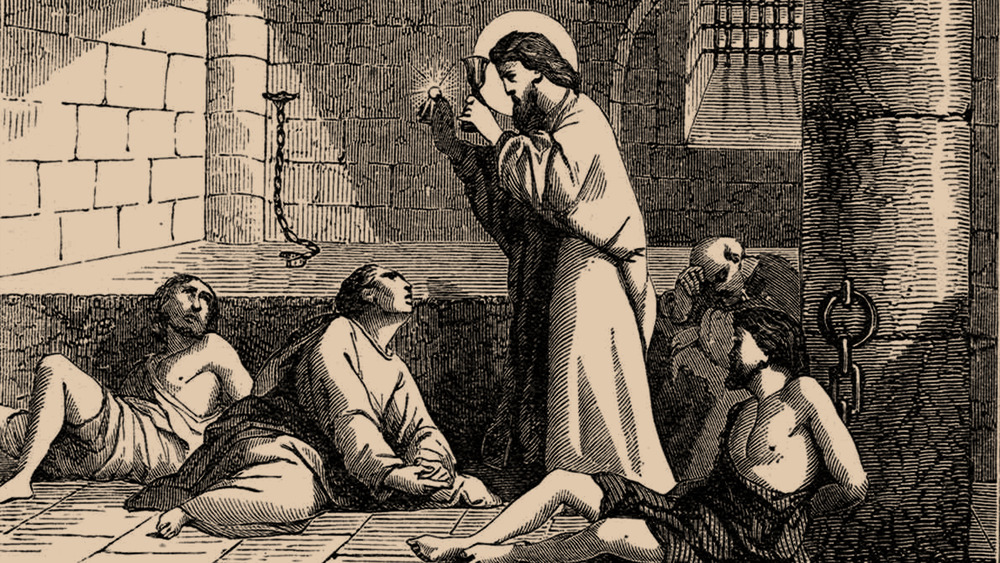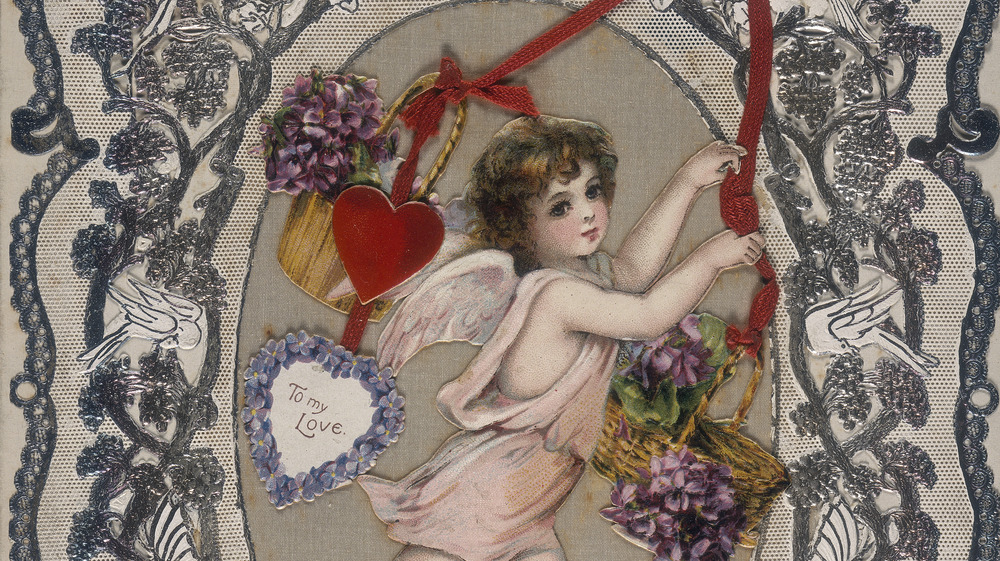The Real Reason We Celebrate Valentine's Day
On February 14, people in a relationship will celebrate Valentine's Day. At the same time, those not in a relationship will continue to ignore its existence.
These days, Valentine's Day feels more and more commercial, less like a day to commemorate and celebrate. That wasn't the case years ago when people began observing the holiday in the first place.
Valentines — or more accurately, St. Valentine's Day — was in tribute of an actual saint. The date, February 14, is the feast day of St. Valentine on most Christian calendars, wrote NPR. The Anglican and the Lutheran churches officially recognize February 14 as the feast day, though the Eastern Orthodox church celebrates two feast days, July 6 and July 30. However, the Roman Catholic Church revised its calendar of feast days in 1969 and removed February 14 as a saint's day.
Well, three saints, since the Church recognizes two to three different St. Valentines, explained History. This is the reason why the Orthodox church has two feast days for St. Valentine. The first, July 6, is to celebrate St. Valentine the Presbyter, and July 30 is a tribute to St. Valentine of Terni.
All three of the saints in question were martyred. No one is sure which St. Valentine is credited for starting the holiday, but it does seem that they each risked their lives for the sake of others — some because they helped lovers get married, and others because they allowed people to practice their religions.
No one really knows which saint is the real inspiration
One of the saints, Valentine of Rome, was a priest who lived in the Third Century. The emperor Claudius II, or Claudius Gothicus, decreed men must remain single, since he believed unmarried men made for better soldiers. But Valentine continued to perform marriage ceremonies in secret. Agents for Claudius discovered the illicit marriages, and the priest was beheaded for defying the emperor. Valentine of Rome also preached Christianity to Romans at a time when that religion was banned.
The most likely candidate, and the one most historians agree lent his name to the feast day, is St. Valentine of Terni. According to Smithsonian Magazine, Valentine of Terni got in trouble when he healed the son of a man who had recently converted to paganism. But, by healing the boy, Valentine managed to convince the father to practice Christianity. Once again, the Roman emperor ordered his execution.
Another St. Valentine also lived during the Third Century. (Valentine must've been a really popular name then.) Not much is known about him, other than he died in Africa in the company of 24 soldiers.
Some historians, said Smithsonian Magazine, believe it's entirely possible that there is only one St. Valentine, or that there may have been different St. Valentines, but the Romans killed only one. The similarities in stories are too connected, they said, so over the years legends may have mixed with fact.
Remember the true spirit of Valentine's Day
Over time, St. Valentine became one of the most popular saints. Some historians argue St. Valentine (whichever St. Valentine it may be) only became connected to the holiday because his death happens to coincide with the pagan celebration of Lupercalia, a fertility festival usually held in the middle of February. To Christianize the event, the Church decided to elevate St. Valentine's death on February 14 as a feast day. Lupercalia itself was not exactly solemn. It mainly involved women being slathered in animal blood and slapped with goats or wolves' skin while parading around town. It supposedly helped them become more fertile and attract husbands.
Either way, people began celebrating St. Valentine's Day and connected it to the idea of romance and marriage. Valentine is even the reason we send cards on the holiday, since he supposedly left letters to his jailer's daughter signed with "Your Valentine." (Yep, it's not purely Hallmark's idea to write love notes, poetic or cheesy or something else entirely.)
So while there's some murkiness over the identity and history of St. Valentine, the real reason the day is celebrated is not to buy massive amounts of chocolate and flowers and booking a fancy restaurant. It's a religious holiday, a day where people should be paying tribute to priests who sacrificed their lives so that others could marry and practice their religion in peace.
But maybe that doesn't sound so good written in a card.


